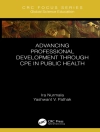For most of the twentieth century, Auguste Comte, a controversial but highly influential nineteenth-century figure, and his vast treatises on positive philosophy, politics and religion were disregarded and largely ignored. More recently, however, Comte’s life and writings have been reexamined together with the project of social reform to which his intellectual labors were devoted, producing a much more complicated picture of his thought and its significance. The Anthem Companion to Auguste Comte—with ten new critical essays by leading Comte scholars, sociologists, intellectual historians, social theorists and philosophers—aims to further this reexamination while also providing a multifaceted introduction to Comte’s thought and to current discussion about him. The essays also examine Comte’s relation to a multiplicity of other thinkers, and his place more generally in the formation and legacy of modern Western thought.
Зміст
Acknowledgements; Introduction – Andrew Wernick; 1. Auguste Comte and the Second Scientific Revolution – Johan Heilbron; 2. ‘Structure’ and ‘genesis’ and Comte’s conception of social science – Derek Robbins; 3. The social and the political in the work of Auguste Comte – Jean Terrier; 4. The counter-revolutionary Comte: theorist of the two powers and enthusiastic medievalist – Carolina Armenteros; 5. The “great crisis”: Comte, Nietzsche and the religion question – Andrew Wernick; 6. “Les ar-z et les sciences”: aesthetic theory and aesthetic politics in Comte’s late work – Stefanos Geroulanos; 7. Comte’s civic comedy: secular religion and modern morality in the age of classical sociology – Thomas Kemple; 8. Auguste Comte and the curious case of English women – Mary Pickering; 9. Comte and his liberal critics: from Spencer to Hayek – Mike Gane; 10. Living after positivism, but not without it – Robert C. Scharff; Appendix A: Calendrier positiviste, ou tableau concret de la preparation humaine; Appendix B: Classification positive des dix-huit fonctions du cerveau, ou Tableau systématique de l’àme; Appendix C: Hiérarchie théorique des conceptions humaines, ou tableau synthétique de l’ordre universel; Appendix D: Tableau des quinze grandes lois de philosophie première, ou principes universels sur lesquels repose le dogme positif; Appendix E: Positivist Library in the Nineteenth Century; Notes on contributors; Index.
Про автора
Andrew Wernick is emeritus professor of cultural studies and sociology at Trent University, Canada, and a life member of Clare Hall, Cambridge. A social theorist, intellectual historian, sociologist of culture and sometime jazz musician, he is the author of more than seventy essays on contemporary culture and cultural/social theory. His writings include Promotional Culture: Advertising, Ideology and Symbolic Expression (1991), Auguste Comte and the Religion of Humanity (2001), and the coedited anthologies Shadow of Spirit: Religion and Postmodernism (1992) and Images of Aging: Cultural Representations of Later Life (1995).












